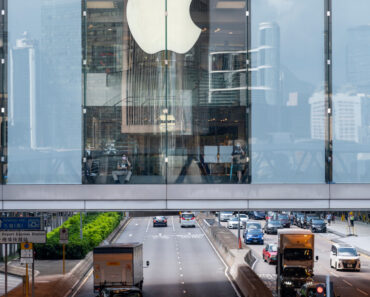This post was originally published on this site
https://fortune.com/img-assets/wp-content/uploads/2024/03/GettyImages-2113285801-e1711834970221.jpg?w=2048
Anyone who’s tried a Xiaomi smartphone knows it’s a worthy competitor to the iPhone. Now the question is, will Xiaomi present the same kind of challenge to Tesla?
On Thursday, the Chinese juggernaut launched its first electric vehicle, the SU7 sedan. Billionaire founder and CEO Lei Jun—who’s a household name in China—said at the presentation in Beijing: “Many people ask me who the Xiaomi SU7 is built for. My answer is, isn’t it time for Tesla Model 3 users to upgrade?”
The entrant of yet another deep-pocketed rival in China comes at a difficult time for Elon Musk’s carmaker. Last week, Bloomberg reported that Tesla had reduced EV production at its Shanghai factory amid intense competition and sluggish growth in China. Tesla’s market cap has fallen about 30% this year, spurring the company to scrap Musk’s no-advertising mantra. Tesla also faces competition from China’s Warren Buffett-backed BYD, which dethroned it a few months ago as the world’s top seller of EVs.
Of course, Tesla has already proven itself as a leading EV maker, while Xiaomi is new in the space.
“In the three years of developing this car, my biggest realization is that making cars is extremely difficult,” Lei said on Thursday. “Even a giant like Apple gave up on it.”
In February, Lei responded to Apple ending its EV project, saying he was “shocked” by the decision. He’s cited Apple cofounder Steve Jobs as a primary inspiration to become an entrepreneur.
Xiaomi, which also makes smart TVs and home appliances, enjoys Apple-like popularity in China.
Lei claimed on Thursday that the SU7 beats the Tesla Model 3 on 90% of specifications, with Xiaomi needing a few more years to catch up on the rest. He said the sedan had a minimum driving range of 700 kilometers (nearly 435 miles) versus 606 for the Model 3. The base model will sell for under $30,000, cheaper than the Model 3 in China.
Let admitted his company will be losing money on every vehicle it sells for the time being. In December, he said that Xiaomi would spend 10 times the labor and investment carmakers usually commit to a new model. But, he added on Thursday, “Xiaomi has enough cash reserves to cope with any fierce competition in the next five years.”
Time will tell if Lei made the right call by entering the competitive EV market or if it should have veered away as Apple did. Plenty of EV startups once valued in the billions are now struggling.
“The risk is that they focus too much on the EV space and lose focus on the sectors and products that got them there,” Tu Le, founder of consultancy Sino Auto Insights, told Reuters.
But Xiaomi off to strong start, at least, with the company reporting that it had received 120,000 firm orders for the SU7 in 36 hours, meaning this year’s production capacity is sold out.



